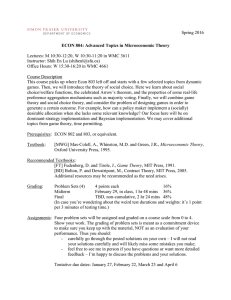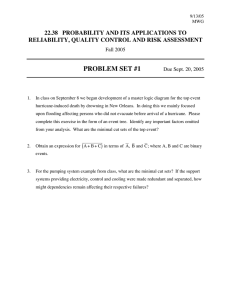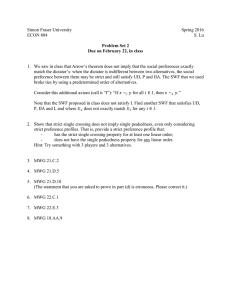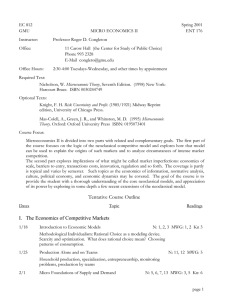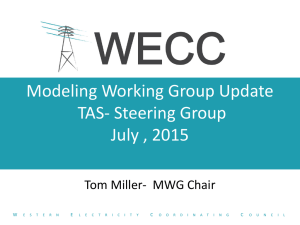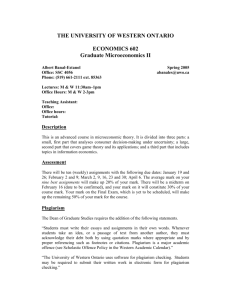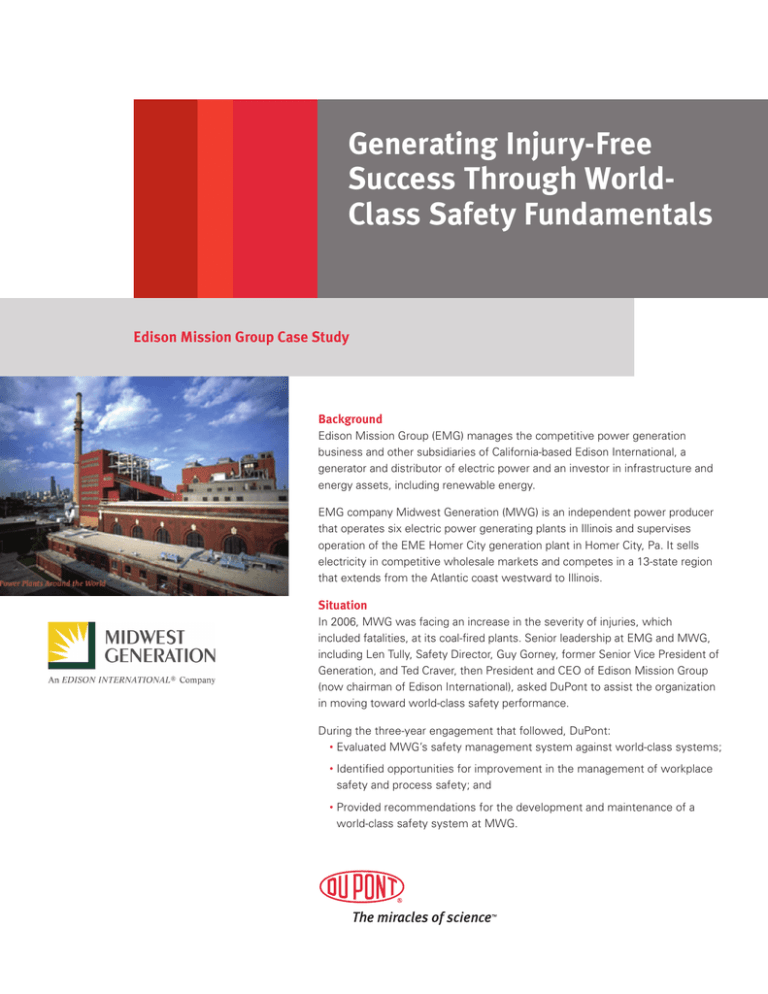
Generating Injury-Free
Success Through WorldClass Safety Fundamentals
Edison Mission Group Case Study
Background
Edison Mission Group (EMG) manages the competitive power generation
business and other subsidiaries of California-based Edison International, a
generator and distributor of electric power and an investor in infrastructure and
energy assets, including renewable energy.
EMG company Midwest Generation (MWG) is an independent power producer
that operates six electric power generating plants in Illinois and supervises
operation of the EME Homer City generation plant in Homer City, Pa. It sells
electricity in competitive wholesale markets and competes in a 13-state region
that extends from the Atlantic coast westward to Illinois.
Situation
In 2006, MWG was facing an increase in the severity of injuries, which
included fatalities, at its coal-fired plants. Senior leadership at EMG and MWG,
including Len Tully, Safety Director, Guy Gorney, former Senior Vice President of
Generation, and Ted Craver, then President and CEO of Edison Mission Group
(now chairman of Edison International), asked DuPont to assist the organization
in moving toward world-class safety performance.
During the three-year engagement that followed, DuPont:
• Evaluated MWG’s safety management system against world-class systems;
•
Identified opportunities for improvement in the management of workplace
safety and process safety; and
•
rovided recommendations for the development and maintenance of a
P
world-class safety system at MWG.
GENERATING INJURY FREE SUCCESS THROUGH
WORLD-CLASS SAFETY FUNDAMENTALS
Initial Assessment Findings
As a first step, EMG and MWG management undertook a
comprehensive assessment with DuPont that identified key
areas of concern and opportunities for improvement:
•
MWG’s safety culture was reactive and compliancefocused.
•
There were pockets of safety system skills in the
organization (such as the incident investigation process
and its safety committees) but these were insufficient to
achieve the highest standards of safety performance.
•
Established safety goals encouraged only incremental
improvement.
•
MWG lacked sufficient safety management knowledge to
achieve world-class safety performance.
•
There was a significant gap in the organization’s ability to
identify and mitigate risk.
•
Inconsistent safety management practices were a barrier
to rapid improvement (i.e., more difficult, more expensive,
slower).
•
MWG’s primary goal was improving the overall safety and
welfare of employees.
Needed First – A Cultural Shift
EMG and MWG leadership also realized that the company
needed to take the following actions to create a strong safety
culture and reach its goals:
Primary Goals
The DuPont assessment was designed to help MWG develop
a high-level path forward for continuous safety improvement
over the three-year engagement period of 2007 to 2010. MWG
and DuPont agreed that the primary goals of the engagement
were to:
1. Reduce employee injuries and ultimately create an injury
free workplace;
2. Transform the safety culture from a reactive, compliancefocused one to an interdependent one (as defined by the
DuPont Bradley Curve) that is proactively focused; and
3. Develop the skills and capabilities of the line organization
to more effectively manage all aspects of the operation
by establishing and maintaining high standards of
performance.
•
ake safety at least as important as production and quality
M
(good safety is good business);
•
ather greater input from stations and include it in the
G
process for setting challenging goals and defining action
plans;
•
xpand the safety leadership organization by involving all
E
levels of employees and management;
•
stablish the corporate safety policy as the driving force
E
behind systems and processes for managing safety;
•
nsure that all, not just some, potential workplace safety
E
hazards are identified, analyzed and safe guarded;
•
reate a comprehensive, structured auditing system that
C
involves all levels of the organization, collect data, and use
this data as a change agent;
•
liminate the potential for hiding injuries by encouraging a
E
culture where injury treatment and prevention take priority
over financial incentives; and
•
nsure that everyone on a station site, including
E
contractors, is required to comply with a consistent set of
safety policies and regulations.
Copyright © 2011 DuPont. All rights reserved. The DuPont Oval Logo, DuPont™ and The miracles of science™ are registered trademarks or trademarks of E. I. du Pont de Nemours and Company or its affiliates.
K25102 (06/11)
2
GENERATING INJURY FREE SUCCESS THROUGH
WORLD-CLASS SAFETY FUNDAMENTALS
The MWG Improvement Strategy
The improvement strategy was organized by DuPont and
implemented in three phases to drive positive organizational
results. First, a division safety system was designed. DuPont
and MWG established a division-level safety governance
structure and designed the future-state MWG safety system
and processes. These processes were piloted at individual
sites prior to broader roll-out. Second, a Central Safety
Committee was initiated at each site and sites prepared
for the roll-out of the MWG safety system and processes.
Third, all levels of the organization participated in safety
leadership training and development workshops and a detailed
re-assessment of the new system and processes were
completed at each site along with additional activities designed
to drive cultural assimilation and optimization.
Although leadership commitment and support were key drivers
in building a safety culture, MWG and the DuPont consulting
team agreed that the greatest success would be achieved
through implementing an improvement strategy that included
seven essential steps:
1. Establishing a strategic safety management structure;
2. Developing and introducing safety process systems in
the areas of safety observation, incident investigation,
rules and procedures, and communications-activitiesinvolvement;
3. Developing performance standards and metrics to
monitor safety performance;
The work with MWG has been expanded to now include EMG
facilities in other parts of the country, so that processes and
practices are consistent across all of EMG and its fleet of more
than 40 coal, gas and wind generating facilities in 13 states.
4. Building safety leadership competencies at all levels of
the organization;
5. Expanding workplace safety systems to include
contractors;
6. Establishing process safety reviews to identify and
mitigate risks from high hazard operations; and
Importance of Process Improvement and Communication
DuPont helped MWG manage the necessary internal changes
through its proprietary process improvement framework which
includes assessing the current state, envisioning the future
state, planning the transition, and implementing the change.
It was also critical to the success of the implementation
to ensure continual two-way communication among
all stakeholders involved in safety management at
MWG, including:
7. Training employees and contractors on the new safety
systems and processes.
Achieving Improvement through a Comprehensive Approach
MWG, with support from DuPont, developed and implemented
a safety management system, focused around the operations
environment. It provides the organizational, process, and skill
infrastructure needed to broaden the perspective of safety,
incorporate accountabilities and move MWG towards being
an injury-free workplace. It was accomplished through a
comprehensive three-year strategic process that included:
•
Defining and documenting safe work standards;
•
Reinforcing standards and expectations through auditing
and observation;
•
Fostering employee involvement through activities and
communication;
•
Preventing incident recurrence through incident
investigation;
•
Incorporating safety into contractor relationships; and
•
Driving accountability through actionable information.
•
The corporate safety committee
•
The steering team
•
Top leadership
•
Team leads
•
Process improvement teams
•
Employees
Copyright © 2011 DuPont. All rights reserved. The DuPont Oval Logo, DuPont™ and The miracles of science™ are registered trademarks or trademarks of E. I. du Pont de Nemours and Company or its affiliates.
K25102 (06/11)
3
GENERATING INJURY FREE SUCCESS THROUGH
WORLD CLASS SAFETY FUNDAMENTALS
Results
Knowledge Transfer and Sustainability
A key deliverable for the MWG steering committee was to
achieve at least a 60% reduction in injuries to MWG employees
against a 2006 year-end baseline. This would represent a major
milestone on a path to zero injuries. By year-end 2010, MWG
reduced its incidence rate by 73%, DART rate by 68% and
LWDC rate by 72%.
Since sustainability is a primary goal of every DuPont safety
consulting engagement, an annual Safety Summit was created
to help maintain and strengthen improvement across all of
EMG. Each year, successes are celebrated at the summit
and continuous improvement opportunities are identified. As
a result, this event has helped anchor and reinforce safety
sustainability throughout the company and over time.
Conclusion
To maintain a world-class safety management structure
and safety culture, an organization must establish high
safety standards; regularly review its performance, monitor
operations and processes; make needed improvements
promptly; and continue safety training, coaching, and other
awareness-building activities so that all employees understand
their responsibilities and know how to work safely. Today
MWG continues to operate by the core set of safety principles
that DuPont helped the company develop and implement.
Benefits to EMG and MWG
In addition to reducing injuries, the most important benefits
of implementing a world-class safety management structure
at EMG and MWG included the development of a work
environment that fosters trust and openness and invites
collaboration between company management and its
employee union. The process has also created professional
development opportunities for employees in the areas of safety
management, project management, team building, process
methodology, and leadership skills.
For more information on DuPont Sustainable
Solutions and its world-class safety management
system consulting services,
call us today at 1-800-532-SAFE (7233)
or visit us at
www.sustainablesolutions.dupont.com
Copyright © 2011 DuPont. All rights reserved. The DuPont Oval Logo, DuPont™ and The miracles of science™ are registered trademarks or trademarks of E. I. du Pont de Nemours and Company or its affiliates.
K25102 (06/11)
4

